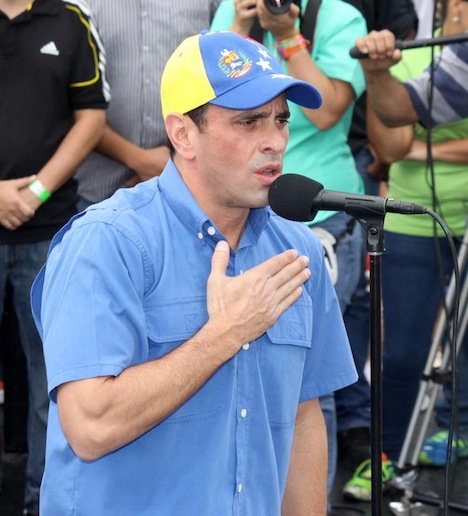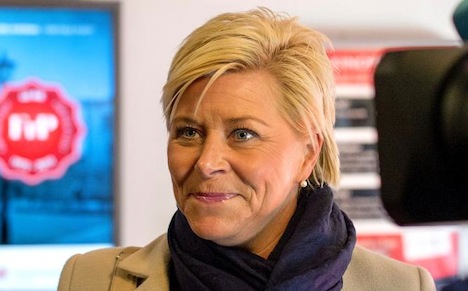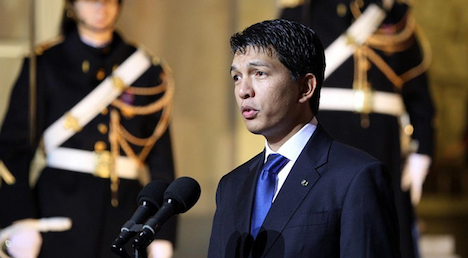Henrique Capriles’s last hopes of winning a recount in the April 2013 presidential election slipped away earlier this month when the chavista-controlled judicial system dismissed his complaints over the election.![]()
No one thought that, four months later, the opposition candidate had much of a chance of unseating Nicolás Maduro, no matter whether he actually won more votes. But the decision two weeks ago of Venezuela’s top constitutional court not only dismissed Capriles’s complaint but fined Capriles around $1,700 for insulting the integrity of the court, and it suggested that Venezuelan prosecutors file a case against Capriles, who is also the governor of Miranda, for offending the institutions of the state.
No one thinks that the April 14 vote was incredibly fair — Maduro’s ruling chavista party, the Partido Socialista Unido de Venezuela (PSUV, United Socialist Party of Venezuela) has co-mingled party and government for so long that it’s impossible to separate the two. Chavismo remains both the dominant party and ruling ideology in Venezuela, even after Chávez’s death in March. The Maduro campaign wielded a huge advantage in its access to state-controlled media and funds, and that followed a massive spending spree last year in the leadup to Chávez’s own reelection in October 2012. But there’s credible evidence that the vote was not incredibly free either, with reports of voter intimidation and manipulation by chavistas and by police and army officials.
Officials in Venezuela’s electoral commission (the CNE) point to a June audit that ‘confirmed’ Maduro’s 1.49% margin of victory. But the CNE won’t release the logs of voter signatures and fingerprints that correspond to the voting machines, which might otherwise reveal how fraudulent the voting actually was. Neither Capriles nor the broad opposition group, the Mesa de la Unidad Democrática (MUD, the Democratic Unity Roundtable), believe the result is legitimate.
Meanwhile, the chavistas are engaged in a slow-motion, cold civil war, and the Venezuelan economy is struggling with a combination of low growth, import dependency, depressed oil output, dysfunctional currency markets, and hyperinflation unseen since the 1980s.
So what happens next — and how does the opposition think about the future? Continue reading Where Capriles and the Venezuelan opposition go from here


